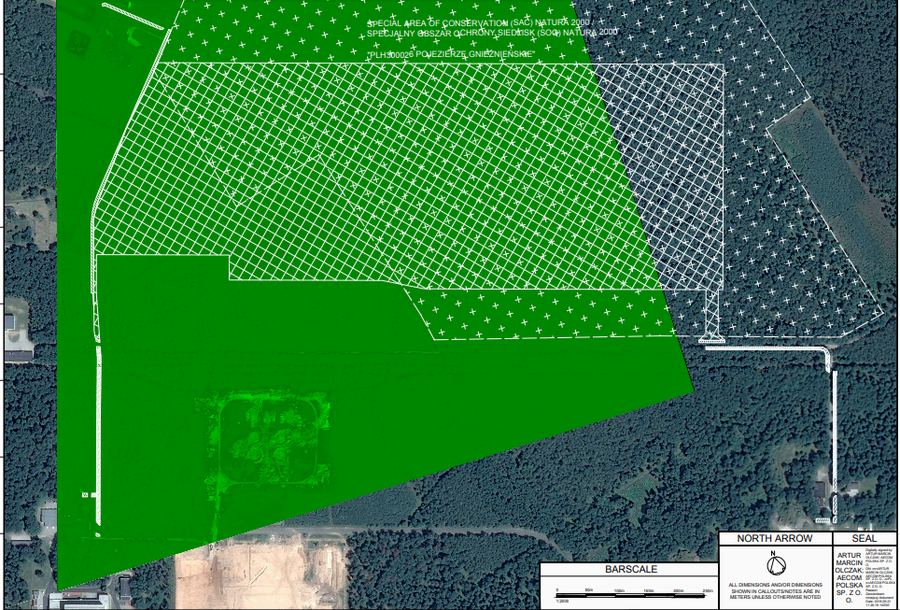Pentagon plans to ax large swathe of precious EU-protected forest for its Poland base

The US military wants to cut down a large swathe of green woodland in Poland, designated by the EU as a conservation site for rare and endangered species. The cleared area will be used to expand an existing air force base.
The US Army Corps of Engineers procurement documents, obtained by RT Russian, detail the Pentagon's plans to cut down 38.18 hectares of protected forest in order to build a prepositioned stock and maintenance complex (APS) around the Powidz Air Base in central Poland. All the tree-cutting must be completed by the end of February next year.
The targeted forest is part of the Gnieznienskie Lake District, which enjoys special protection within the European Union under the Natura 2000 program. This EU-wide project is tasked with listing and protecting the breeding and resting sites of "rare and threatened species."
Despite the area's internationally-recognized importance for preserving Europe's most endangered birds and animals, Poland's Washington-friendly government gave the US Army the green light to ax the woodlands. The Military Infrastructure Board filed a letter requesting a portion of the forest be removed from the Natura 2000 conservation zone.
The permit was granted by the local environment protection services in April.
Polish officials' reasoning is that the extension of the base allows the Pentagon to "improve security in Europe" and that the "the project is being implemented as part of Poland's obligation resulting from its alliance" with the US.
The chief of the Regional Environmental Protection Authority in Poznan stated in a letter in August that cutting down trees to accommodate the US Army is "carried for the benefit of overarching public interest," which "must be considered more important than the primary protection objective in the Natura 2000 area."
In the same letter, the environmental agency admits that chopping down the forest will have "a significant adverse effect" on the protection of endangered species. The area that was exempted from the environmental protection regulations is marked green on the map attached to the decision.

Over 30 bird species that live in nests in tree hollows will be impacted by the decision. Before cutting the trees down, the birds will be scared away from their usual habitat until March 2019, when construction work is set to begin.
The permit stipulates compensation for the "permanent exclusion" of the woodland from the protected zone, which is equivalent to $4.5 million, as well as an annual fee to be paid for 10 years and a one-time indemnity.
The expansion of the base at the expense of nature is in line with the Polish government's strategy of stepping up American military presence on its territory to counter what it considers to be an existing "Russian threat." Warsaw, a NATO member, seeks to have a permanent military base in the country and is ready to fork out up to $2 billion for having US troops stationed on its territory, an idea that US President Donald Trump seems to favor.
The EU might feel less enthusiastic about the idea of choosing US troops over the precious forest, but there's little it can do to stop it.
"The EU may well file a protest, but that does not mean that the Poles will respond adequately, considering their present state of relations with the EU," Oksana Petrovskaya from the Russian Institute for Strategic Studies told RT Russian.
Poland in the past was chastised by the EU for violating the law that prohibits logging in the ancient Bialowieza forest. Warsaw pledged to respect the EU top court's April ruling that found the practice illegal as it had endangered many species of birds and insects.
Like this story? Share it with a friend!
















